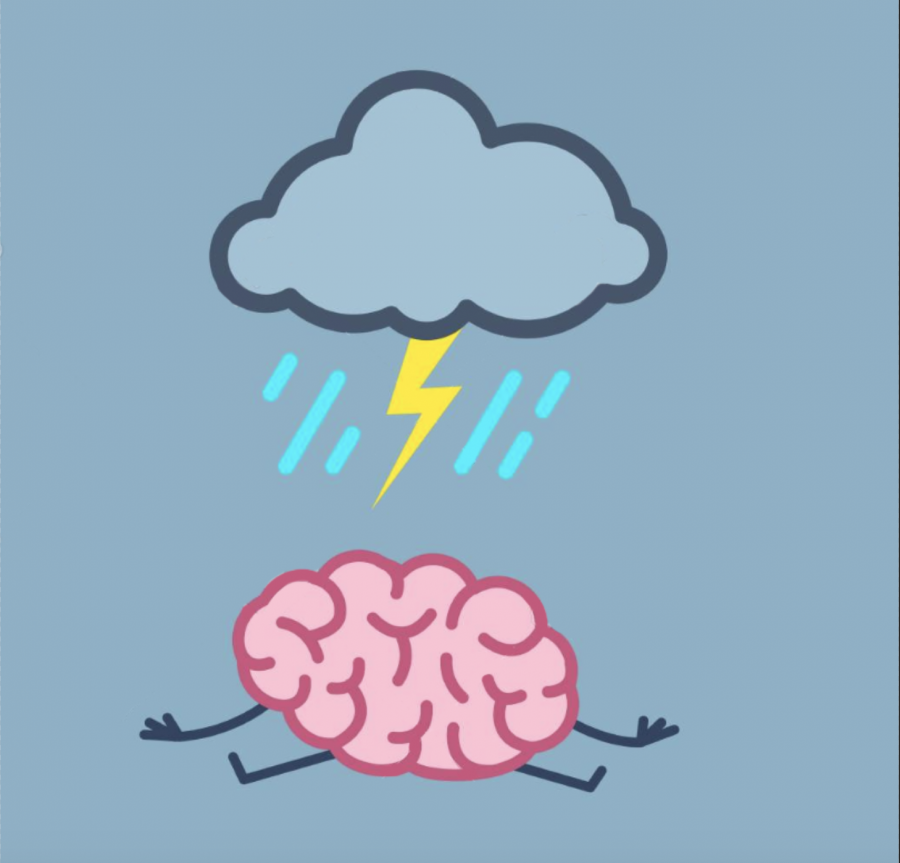Blue minds, blue times
Debunking the stigmas surrounding mental illness
Depression, generalized anxiety, bipolar disorder, psychotic disorder, all of these fit under the ginormous, blue umbrella that is mental illness. What do you feel when you hear this list?
Confusion? Recognition? Empathy? Fear? Whatever you feel, wherever you stand, mental illness is something we need to be talking about.
According to the National Alliance on Mental Illness, “In the United States, one in five adults experiences a mental health condition each year.” Despite this sizable portion of the population, many stigmas still surround mental ailments, and some don’t realize how many people they impact each day.
Any student can relate to having stressful days filled with stringent teachers and neverending pages of reading, but others might be dealing with something more. Approximately one in five teenagers have a mental health disorder, brought on by a wide variety of factors.
“Lifestyles are changing as teenagers now are bombarded with different technology. Between having smartphones with you 24/7, having access to tons of media platforms, increased pressure at school, getting into college, and being more competitive, there are new and different pressures,” wellness counselour Emily Jarman said.
Those who experience mental health roadblocks also occasionally receive criticism from others subscribing to false stereotypes.
“A big stigma is that [having a] mental illness is a sign of weakness. Many don’t understand or recognize mental illness as a real health condition,” Jarman said.
Mental illnesses have always been an issue and problem society needed to address, however it isn’t until recently that significant groups of people have used them as a explanation for dangerous action.
“Many may think that certain mental health conditions might make someone dangerous, but this is completely inaccurate. And I think there has been a lot of progress,” Jarman said.
Advocates and foundations alike have been making strides to open a worldwide discussion surrounding our mental health. Project Semicolon, Big White Wall, and more nonprofits are spreading awareness about mental illnesses.
It’s detrimental that we continue to have healthy conversations regarding mental health. We should never let fear or misunderstanding dictate how we view a specific group of people.
“It’s important to recognize that everyone needs to take care of their mental health. Everyone needs to be taking care of themselves, their body and their mind,” Jarman said.
And let’s face it, we probably all know someone who is struggling with something. Let’s help them, let’s help each other, let’s help ourselves feel better and become better educated when it comes to our mental health.


